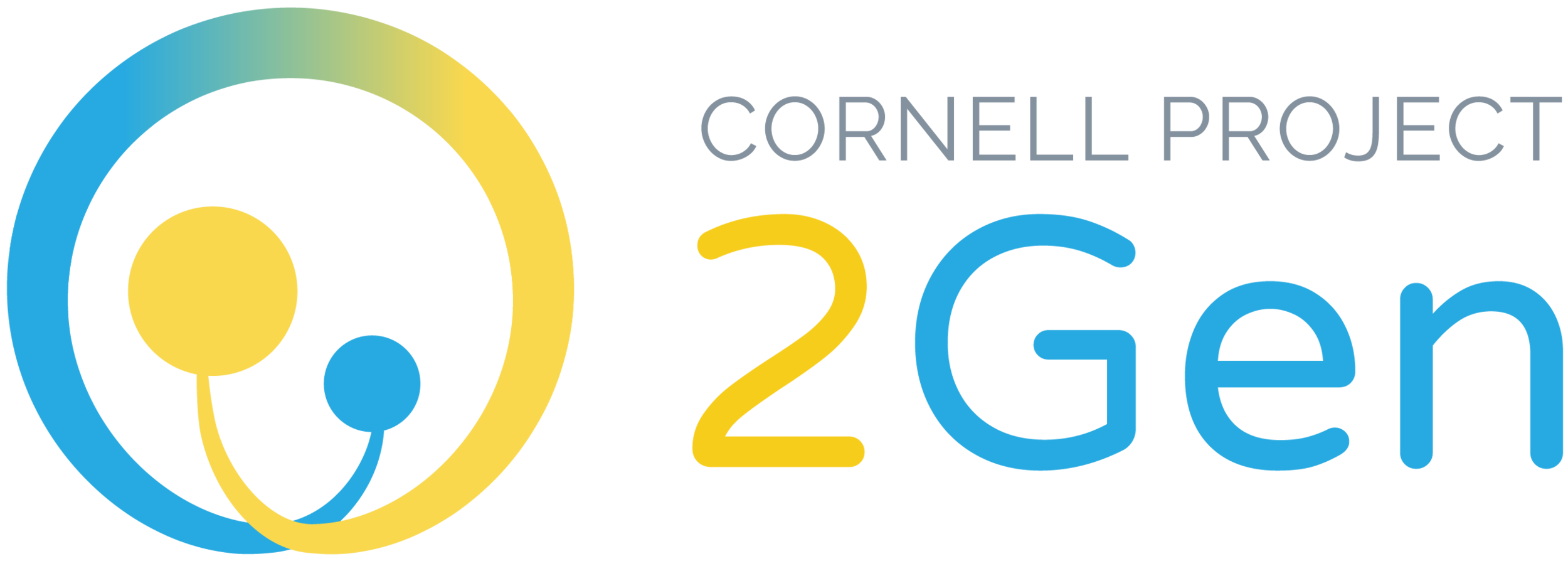Evaluating Efforts to Raise Awareness of Childhood Trauma and Inspire Action
Manavii Kumar, Fall 2019 2Gen Scholar
I have learned and grown so much through being a 2Gen scholar. I joined 2Gen because of my interest in exploring research in the social sciences. As a pre-med, I’ve been taught to believe that I should only focus on STEM work and research and that understanding the humanities and social sciences is irrelevant. But through my experiences in interdisciplinary classes and Cornell Alternative Breaks, I developed an interest in exploring health through the lenses of society, health policy, and patient experiences to understand root causes of community health challenges. I began to think critically about how our institutions, infrastructure, and policies continue to perpetuate systems of oppression and inequality.
My experience with Project 2Gen has helped me deepen my understanding of these ideas while providing an opportunity to integrate community engagement and research. This semester we worked with Orange County, NY to assist in their project to increase ACE (adverse childhood experience) awareness and interventions in their community. As the survey team on this project, our goals were to help analyze and present the data Orange County had already collected, as well as to recommend new ways to assess the community-level impact of ACE awareness and ACE interventions.
I was initially shocked by the lack of structure in our projects when it came to working with the community partners, as I had expected to be assigned a project and given specific steps and directions. Instead, during our first meeting, we learned about the community and their general goals, and based our projects on what the community needed. I appreciated this approach to research and I feel like traditional STEM research often loses this key perspective. Our readings further strengthened these ideas. Many readings introduced us to research in this field and emphasized the importance of understanding and including the community in our work.
Prior to working with 2Gen, I had never heard the term ACES. I thought it only had to do with children, but I was amazed to find the various stakeholders understood ACEs as an intergenerational issue. It was also great to see how hard people have worked on ACES and understanding them. It was incredibly rewarding to see the direct impacts of this type of work on the communities. I especially enjoyed our meeting in Orange County with the stakeholders.
Through my research, I was amazed to see the impact of work to address ACEs throughout the country. We used Washington State’s ACEs Public-Private Initiative (APPI) research to shape our suggestions to Orange County. Currently, Orange County has only engaged in collecting subjective, individual-level measurements that consist of surveys after a film screening in order to raise ACE awareness. In order to understand the community-level impact of ACE awareness, we recommended that Orange County should start measuring the same outcomes that Washington State has. Washington State has done a good job of using both subjective (surveys) and objective (rates of hospitalizations, graduation rates, etc.) methods of measuring ACES. While it may take a while to implement the surveys and get a good response rate, it is easy to access data concerning some of the objective measurements (arrest rates, graduation rates, etc.). Furthermore, instead of comparing their trends on these 30 indicators with another county, we recommended that Orange County follow a pre-post format, looking at data within their own county over a few years. These changes will help Orange County have a good measurement method for both individual- and community-level impacts of increased ACE awareness.

